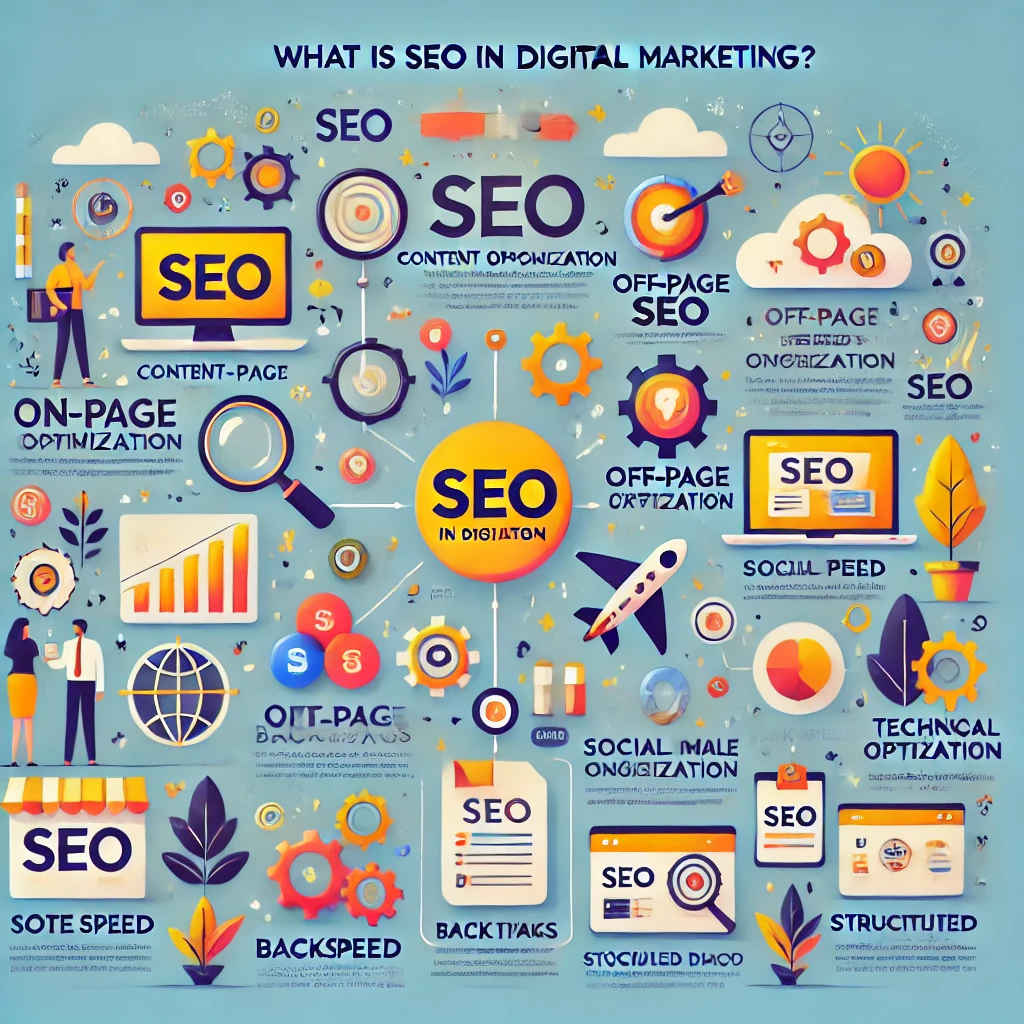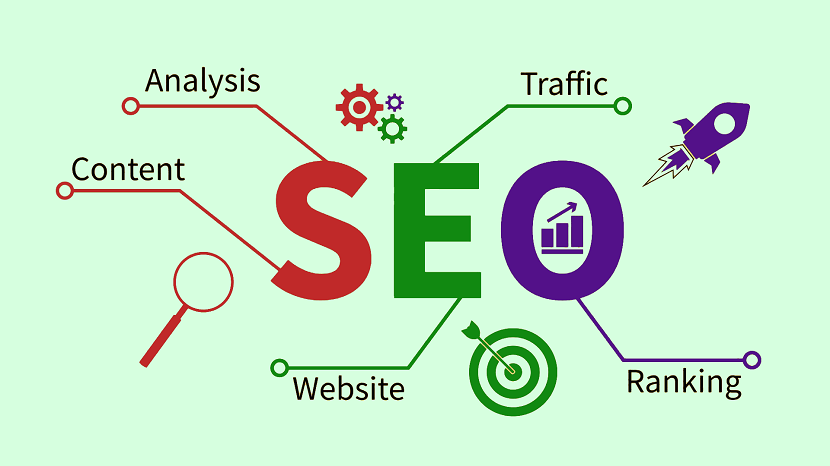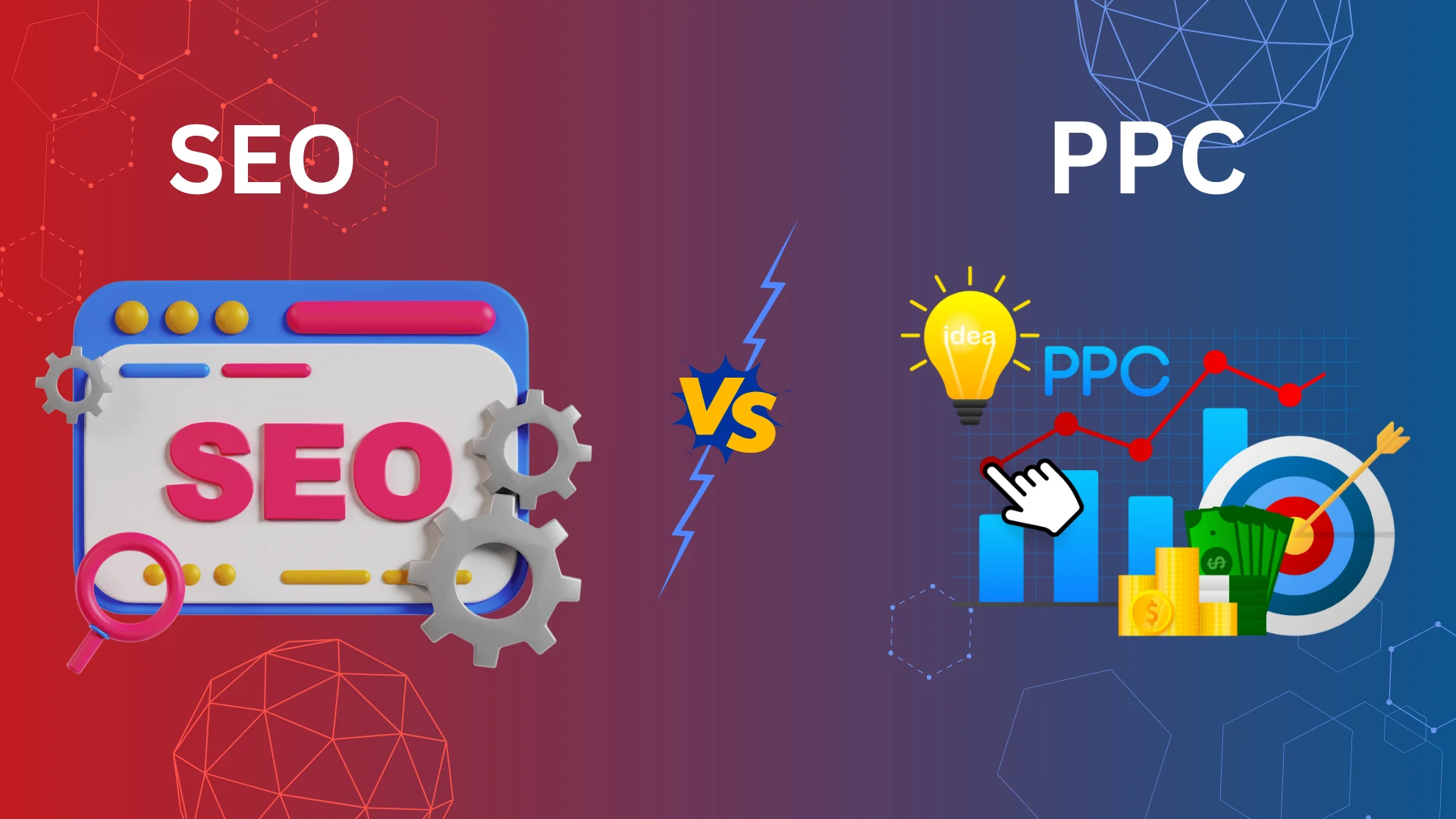
What is SEO in Digital Marketing?
In today’s fast-paced digital landscape, Search Engine Optimization (SEO) stands as a cornerstone of effective online marketing strategies. As businesses strive to capture the attention of potential customers, understanding SEO is essential for enhancing a website’s visibility and driving organic traffic. This blog delves into the intricacies of SEO, its components, and its significance in the realm of digital marketing.
Understanding SEO
At its essence, SEO is the practice of optimizing a website to make it more appealing to search engines like Google, Bing, and Yahoo. This optimization process involves a blend of technical, creative, and analytical tasks that work together to improve a website’s ranking on search engine results pages (SERPs). The primary goal is to achieve higher rankings for relevant keywords and phrases that potential customers are searching for, ultimately leading to increased traffic and conversions.
Key Components of SEO
SEO can be broadly categorized into three main components: On-Page SEO, Off-Page SEO, and Technical SEO. Each of these components plays a vital role in a comprehensive SEO strategy.
1. On-Page SEO
On-page SEO refers to the strategies implemented directly on the website to enhance its performance. Key elements include:
- Keyword Research: This foundational step involves identifying the keywords and phrases that potential customers use when searching for products or services. Effective keyword research helps in understanding user intent and guides content creation.
- Content Quality: High-quality, informative, and engaging content is crucial for retaining visitors and encouraging them to take action. Content should be tailored to meet the needs of the target audience, providing value and addressing their queries.
- Meta Tags: Optimizing title tags and meta descriptions can significantly improve click-through rates from SERPs. These tags serve as the first impression of your content and should be crafted to be both informative and enticing.
- URL Structure: Clean, descriptive URLs not only improve user experience but also help search engines understand the content of the page. A well-structured URL can enhance the chances of ranking higher in search results.
- Internal Linking: Linking to other relevant pages within your website helps establish a hierarchy, guides users, and spreads link equity across your site.
- User Experience (UX): Ensuring that your website is user-friendly with easy navigation, fast loading times, and mobile responsiveness is vital for retaining visitors and encouraging conversions.
2. Off-Page SEO
Off-page SEO refers to actions taken outside of your website that influence its ranking in search results. These actions are essential for establishing credibility and authority in your industry. Key elements include:
- Backlink Building: Acquiring links from reputable and relevant sites boosts your website’s domain authority. High-quality backlinks signal to search engines that your content is trustworthy and valuable.
- Social Media Engagement: Actively promoting your content on social media platforms can drive traffic to your website. Engaging with your audience on these platforms increases brand awareness and encourages shares and backlinks.
- Influencer Marketing: Collaborating with influencers can broaden your reach and introduce your brand to new audiences. Influencers can help create authentic content that resonates with their followers and drives traffic to your website.
- Online Reputation Management: Monitoring and managing your brand’s online reputation through reviews and customer feedback can enhance trustworthiness and attract more visitors.
3. Technical SEO
Technical SEO involves optimizing the technical aspects of a website to ensure it meets the requirements of search engines. This component is crucial for improving crawling and indexing. Key areas include:
- Site Speed: Fast loading times are critical for user experience. Websites that load slowly may experience higher bounce rates, negatively impacting rankings. Optimizing images, leveraging browser caching, and minimizing code can enhance speed.
- Mobile Optimization: With the increasing use of mobile devices, ensuring your website is responsive and functions well on various screen sizes is essential. Google prioritizes mobile-friendly websites in its rankings.
- XML Sitemaps: Creating and submitting XML sitemaps helps search engines crawl and index your website more efficiently. Sitemaps provide a roadmap of your site’s structure, making it easier for search engines to understand the content.
- HTTPS Security: Using HTTPS instead of HTTP adds a layer of security to your site, which is a ranking factor for Google. Ensuring that your site is secure helps build trust with users.
- Structured Data Markup: Implementing structured data can enhance your search results with rich snippets, providing additional context about your content and potentially improving click-through rates.
The Importance of SEO in Digital Marketing
In the contemporary digital landscape, consumers heavily rely on search engines to find products, services, and information. Here are several reasons why SEO is vital for businesses:
- Increased Visibility: A higher ranking on SERPs leads to more visibility, meaning more users will see and click on your website. This exposure is crucial for attracting new customers and expanding your audience.
- Cost-Effective Marketing: Unlike paid advertising, organic traffic generated through SEO is free. While it requires an investment of time and resources, the long-term benefits far outweigh the costs.
- Enhanced User Experience: SEO involves optimizing various elements of a website, leading to a better user experience. A well-structured site with valuable content keeps visitors engaged and encourages them to return.
- Credibility and Trust: Websites that rank higher are often perceived as more credible and trustworthy by users. Effective SEO practices help build authority in your niche, fostering trust among potential customers.
- Competitive Advantage: In a crowded marketplace, businesses that invest in SEO can gain a significant edge over competitors. By effectively optimizing their websites, they can capture more market share and attract a loyal customer base.
- Long-Term Results: While SEO may take time to show results, its effects can be long-lasting. Once a website achieves a good ranking, it can maintain visibility and traffic with ongoing optimization efforts.
The Future of SEO
As technology and search engine algorithms continue to evolve, the future of SEO will likely be shaped by emerging trends and innovations. Here are a few key trends to watch:
- Voice Search Optimization: With the rise of voice-activated devices like smartphones and smart speakers, optimizing for voice search will become increasingly important. Businesses should consider how people phrase their queries when speaking versus typing.
- AI and Machine Learning: Search engines are increasingly using AI and machine learning to improve search results. Understanding user intent and delivering personalized content will be essential for successful SEO strategies.
- Video SEO: Video content is becoming more prevalent, and optimizing videos for search engines will be crucial. Businesses should consider incorporating video into their content strategy and optimizing titles, descriptions, and tags.
- Local SEO: As more users search for local businesses, optimizing for local search results will be vital. Ensuring accurate listings on platforms like Google My Business and leveraging local keywords can enhance visibility.
Conclusion
In conclusion, SEO is an integral part of digital marketing that requires ongoing attention and adaptation. By implementing effective SEO strategies, businesses can enhance their online presence, attract more visitors, and ultimately drive conversions. As search engines continue to evolve, staying informed about the latest trends and best practices in SEO is essential for sustained success in the digital realm.
Investing in SEO not only improves visibility but also builds credibility, ensuring that businesses remain competitive in an increasingly digital world. As the landscape of digital marketing continues to change, a solid understanding of SEO will empower businesses to thrive and achieve their goals in the online marketplace.






There are 0 comments